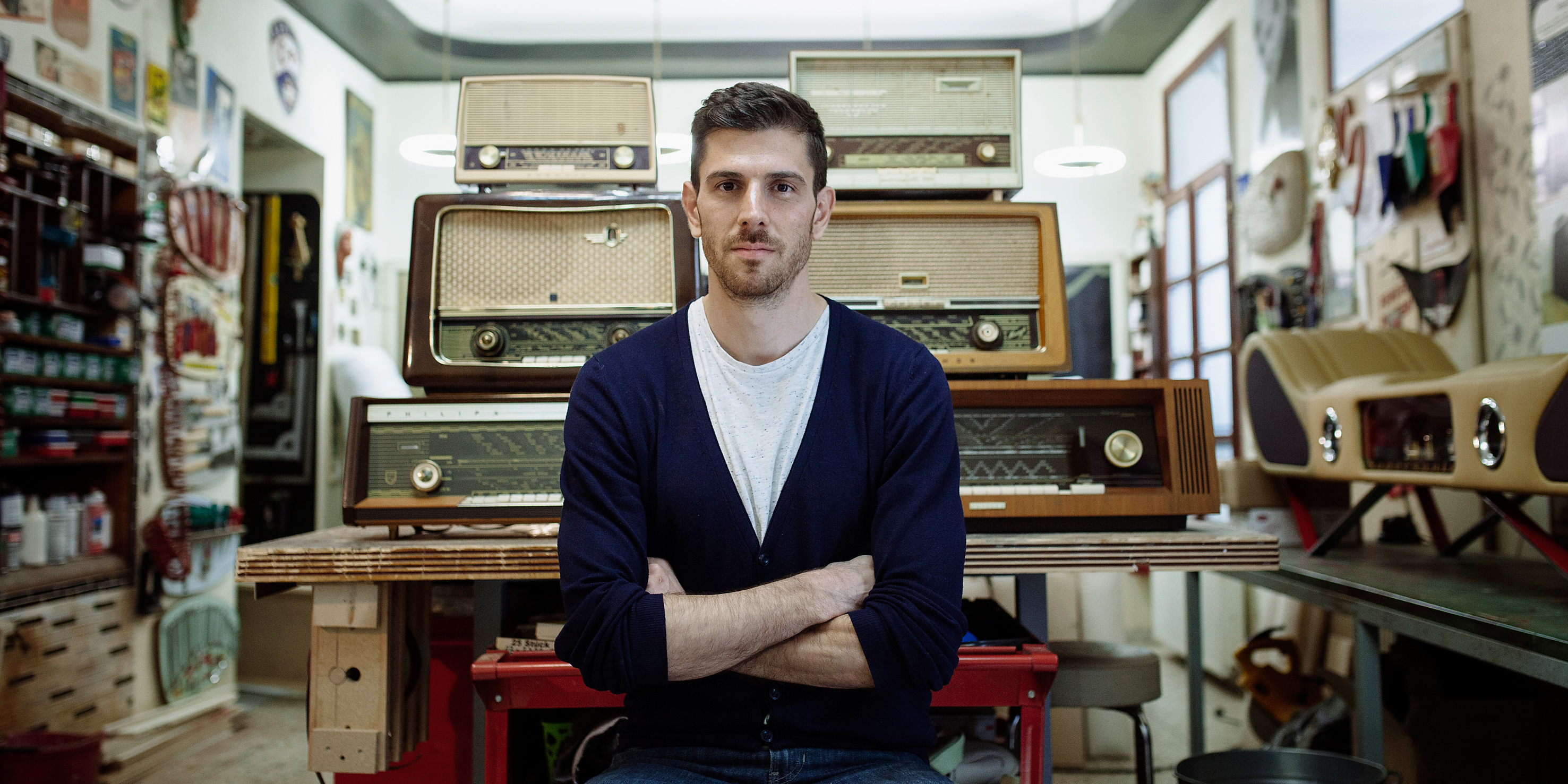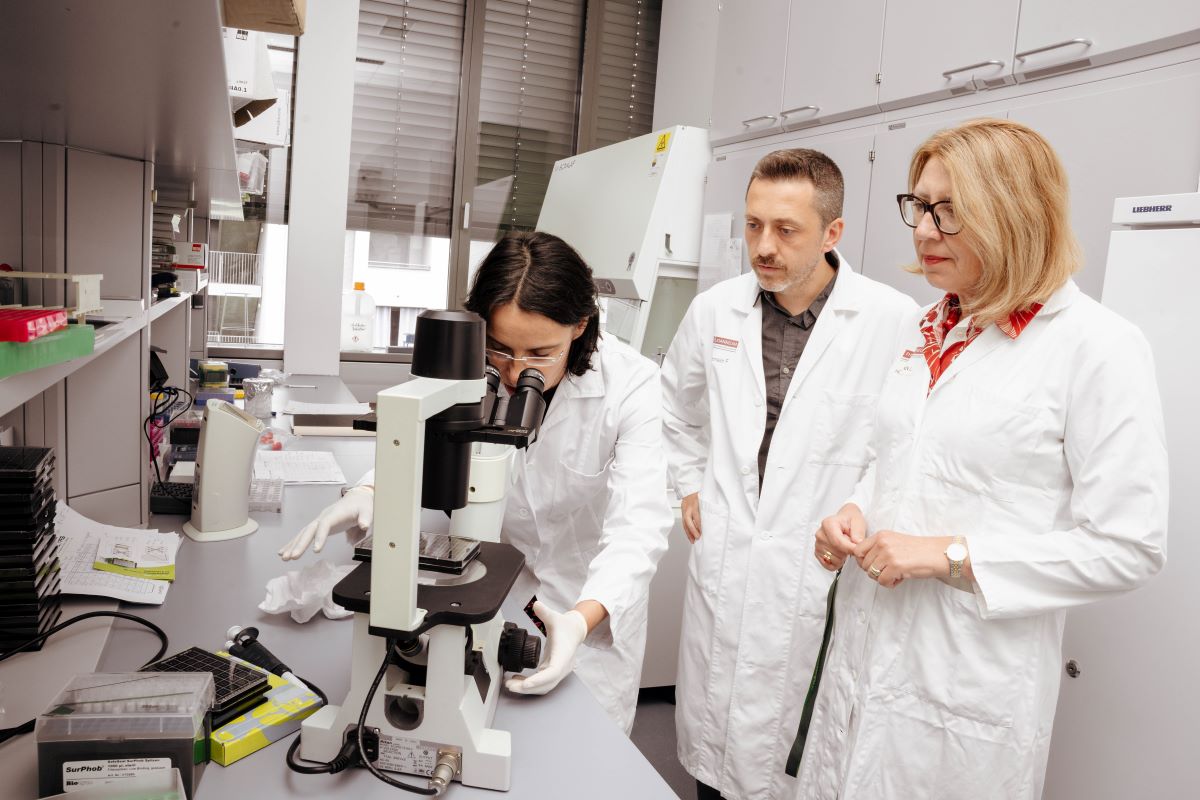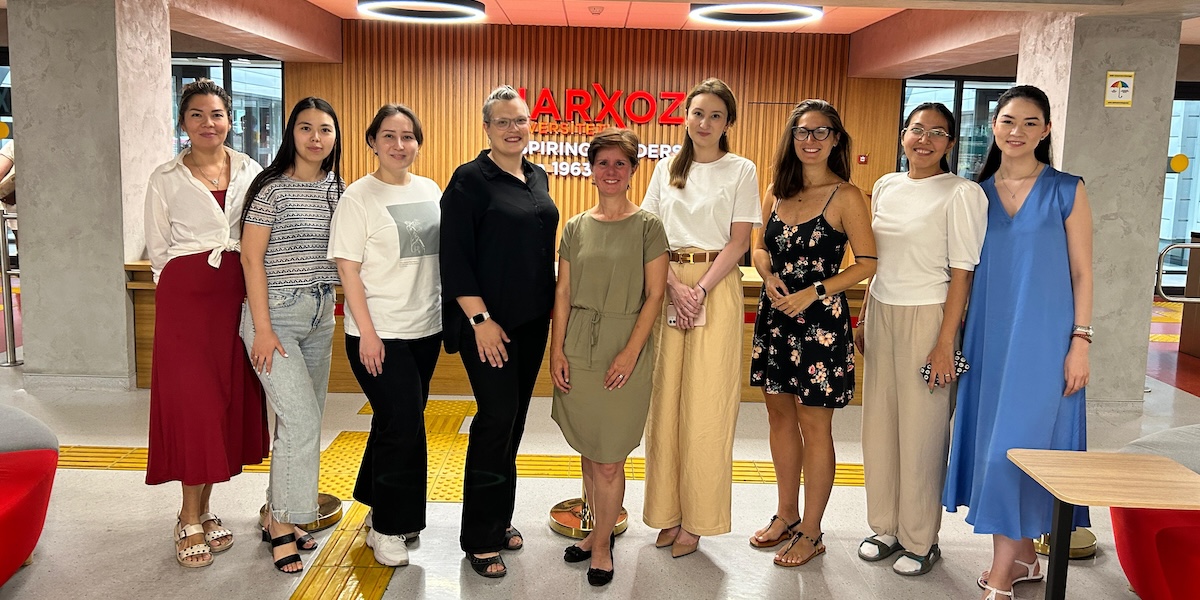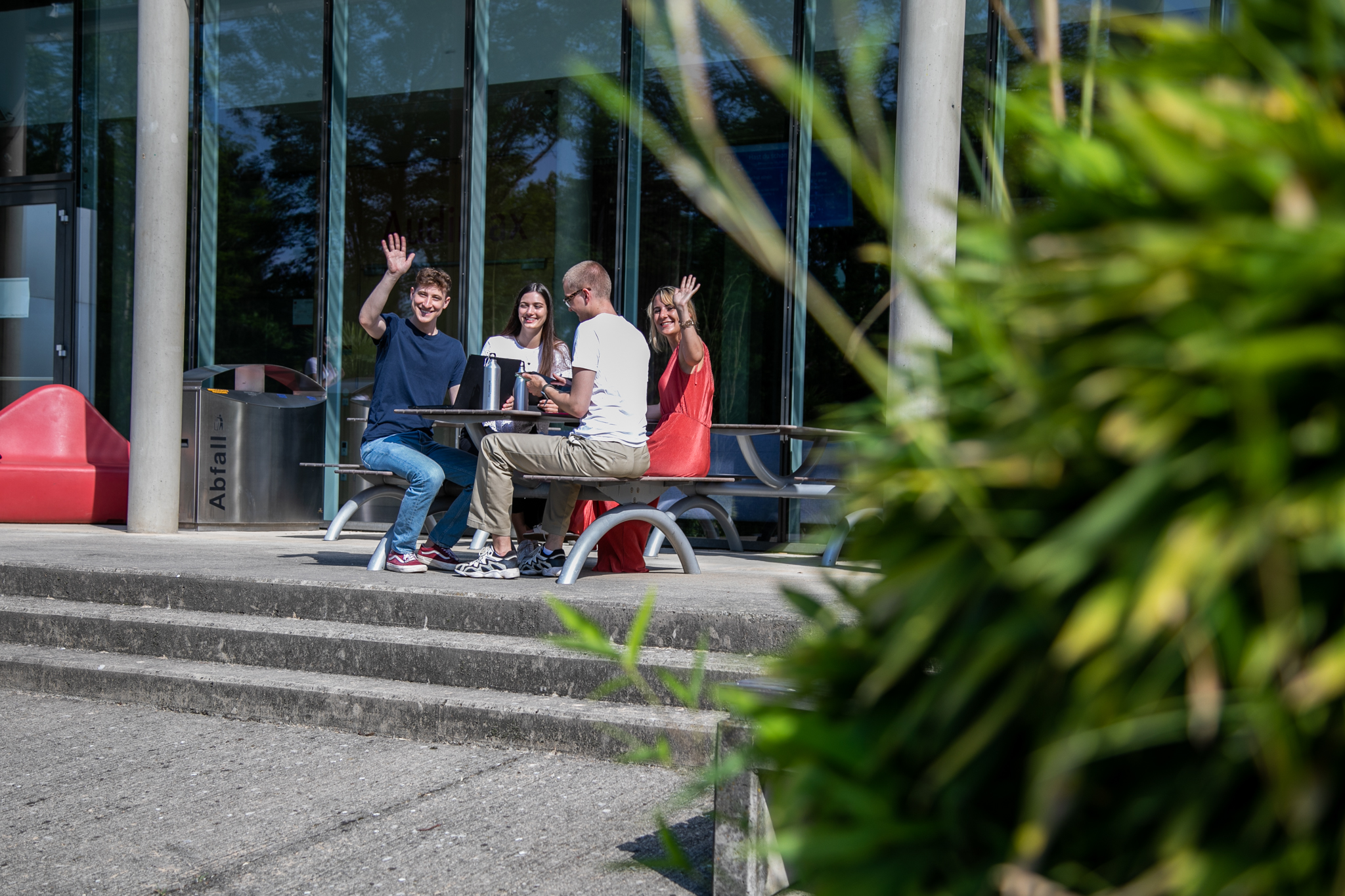Complex electronics meet creativity and a love of detail: in his start-up enterprise, SuperSonic, FH JOANNEUM graduate Richard Sbüll is restoring classic tube radios dating from the last century. By incorporating the latest microelectronics he is turning old radios into unique collectibles.
Start-up: Classic radios with modern electronics
Eva-Maria Kienzl
No hissing, just crystal clear sound from old tube radios – that’s the promise made by FH JOANNEUM graduate Richard Sbüll with his start-up enterprise SuperSonic. (© Stefan Lozar / Graz)
Radios are Richard Sbüll’s passion. They combine music with electronics, bringing together two interests which have fascinated him since childhood. Today Richard Sbüll devotes himself to old radios, dating mainly from the 1950s, 60s and 70s, at his own enterprise SuperSonic in Vienna. The company was founded in 2015 to service and repair old tube radios, as well as offering the complete replacement of technical components, which is particularly recommended for old radios from the 1940s. The supreme challenge lies in combining tube technology with state-of-the-art microelectronics. The result: perfect looking classic radios with streaming and Bluetooth capability, and hi-fi stereo equipment which meets the highest audio engineering quality standards.
** Making new out of old**
Printed circuit boards, microchips, frequencies, loudspeakers, wood, glass and metal – Richard Sbüll’s work requires an abundance of knowledge, time and premium quality materials. He customises each piece in his workshop according to the customer’s wishes, designing and developing the integrated electronics and installing them by hand. Perfect workmanship is the prerequisite for these luxury items. They are also a form of protest against mass production and society’s throw-away culture.
What does it take to restore and reengineer radios? Skilled craftsmanship for the exterior appearance, sound engineering know-how for the perfect tone, and technical understanding of both old radio sets and state-of-the-art microelectronics. Richard Sbüll gained the latter during his degree at the FH JOANNEUM Institute of Electronic Engineering.
“The course provides the basis for working in complex electronics, and taught me the technical skills which I need daily in my work. The business focus was also helpful in setting up my own enterprise and so, supported by my personal interest in finance, tax law and marketing, starting SuperSonic has gone well,” says Richard Sbüll.
Since graduating he has retained close links with the university. Up until the past semester he has passed on his knowledge of microchip design by teaching students on the Bachelor’s degree programme in Electronic and Computer Engineering and the Master’s degree programme in Electronics and Computer Engineering. Now he is spending more time on his business, but still contributes his expertise to the Institute through involvement in chip design and micro and nanoelectronics research.










